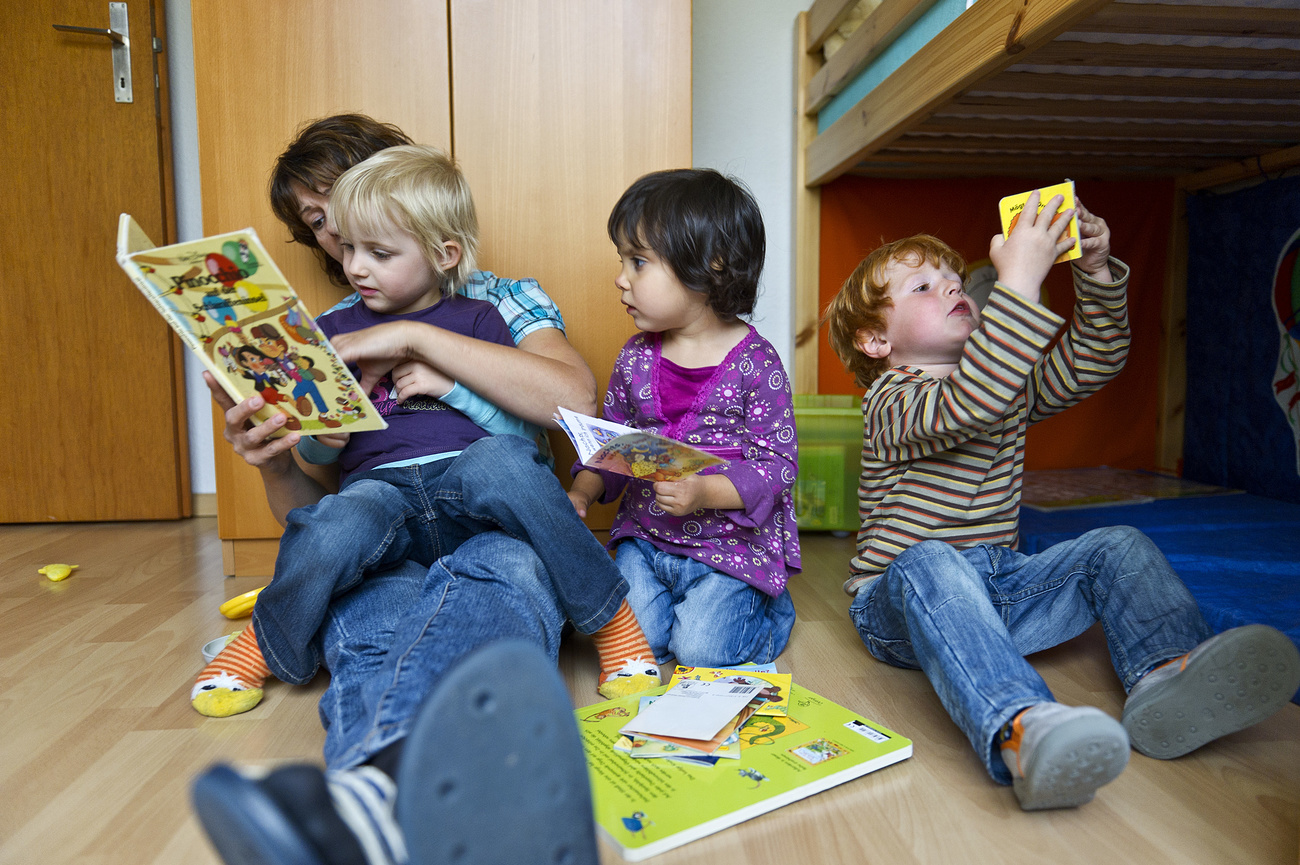
Switzerland among worst in the world for childcare support

Switzerland has one of the most expensive childcare systems in the developed world and also gets bad marks on parental leave, according to a report by the United Nations Children’s Fund (UNICEF).
The Alpine state is ranked 38th out of 41 countries that are compared by the “Where do rich countries stand on childcare?External link” report released on Friday.
Swiss voters decided last year to introduce ten days of paternity leave (UNICEF advocates six months), while mothers have been entitled to 14 weeks paid leave since 2005. But this still leaves Switzerland just one rung off the foot of the UNICEF table for this benchmark.
Only the United States, which offers no nationwide statutory entitlement to maternity or paternity leave, performs worse.
The cost of crèches and other forms of childcare in Switzerland is also deemed prohibitively expensive. “In Ireland, New Zealand and Switzerland, a couple with an average income would need to spend between a third and a half of one salary to pay for two children in childcare,” the report said.
The Swiss government and cantons say they are looking into providing more daycare places at a more reasonable cost. Access to childcare facilities across the world has been restricted by enforced coronavirus closures, the UNICEF report notes.
In 2019 the Federal Statistical Office said that raising two children in Switzerland (through all stages of childhood) costs at least half a million francs.
During the same vote last November that introduced Swiss paternity leave, voters also turned down a proposal to introduce more tax breaks for families.
Pre-school education
Switzerland does achieve higher marks in the UNICEF study for giving children access to quality education at pre-school level. Here, Switzerland is ranked in a respectable 18th position.
“To give children the best start in life, we need to help parents build the nurturing and loving environment that is so critical to children’s learning, emotional well-being and social development,” said Henrietta Fore, UNICEF Executive Director.
“Government investment in family-friendly policies, including childcare, ensures parents have the necessary time, resources and services they need to support their children at every stage of their development.”

In compliance with the JTI standards
More: SWI swissinfo.ch certified by the Journalism Trust Initiative




























You can find an overview of ongoing debates with our journalists here . Please join us!
If you want to start a conversation about a topic raised in this article or want to report factual errors, email us at english@swissinfo.ch.